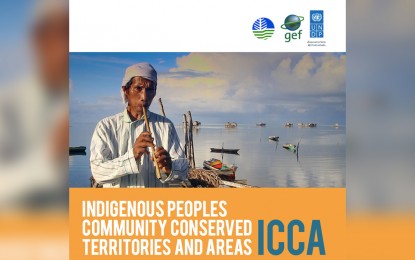
MANILA – The Department of Environment and natural Resources (DENR), as well as other concerned agencies and stakeholders, will look into how to institutionalize the involvement of Philippine indigenous peoples (IPs) in conservation efforts nationwide.
IPs are knowledgeable about territories they occupy and have respective time-tested strategies benefiting the environment so government must involve them in such efforts, noted Sam Pedragosa, team manager of the Indigenous Communities Conserved Territories and Areas (ICCA) project, which the DENR’s Biodiversity Management Bureau (BMB) is piloting - with the help of United Nations Development Program and Global Environment Facility -- international partnership of 183 countries, institutions, civil society organizations, and the private sector that addresses global environmental issues.
“We’ll see how to have inclusive conservation,” he said.
He said the project will end next month so it’s important to already discuss the matter and way forward including possible initiatives to promote IPs’ role as conservation partners in their areas and setting ICCA as a governance method for helping conserve nature.
This week’s third National ICCA Conference in Quezon City is one venue for such discussions, he noted.
According to UNDP, ICCAs are “natural and/or modified ecosystems containing significant biodiversity values, ecological services and cultural values, voluntarily conserved by indigenous peoples and local communities -- both sedentary and mobile -- through customary laws or other effective means.”
However, UNDP noted that ICCAs are generally poorly understood and neglected governance methods for conservation aside from being unrecognized in official protected area systems and livelihood and development plans.
Pedragosa said proposed policies drafted during the ICCA project, which started in September 2015, can serve as inputs for institutionalizing IPs’ involvement in conservation.
“Hopefully, agencies concerned can follow through and translate these into policy issuances,” he said.
Among such agencies are the environment and interior departments as well as National Commission on Indigenous Peoples, he noted.
He said involving IPs in conservation is in line with RA 11038 (Expanded National Integrated Protected Areas System Act of 2018).
“Under such law, areas covered by IPs will be governed and managed by them,” he said.
Pedragosa said the Biodiversity Management Bureau and its partners are piloting the ICCA project in Kalinga, Ifugao, Nueva Vizcaya, Aurora, Bataan, Palawan, Bukidnon, North Cotabato, Agusan del Sur, and Surigao del Sur provinces.
“Since the project is about to end, it’s important to know what agencies concerned plan for ICCA,” he said.
Last year, Rep. Teddy Baguilat filed HB 115 on protecting ICCAs in the country. He said there’s need for a law that’ll “provide the necessary government mandate, especially the annual budget and people needed to manage the ICCAs.”
Incoming Antique province Representative Loren Legarda also filed SB 1185 at the Senate in 2016 which seeks to protect and strengthen indigenous peoples and local communities conserved areas, recognize contribution of these to biodiversity conservation and establish the national ICCA registry. (PNA)
